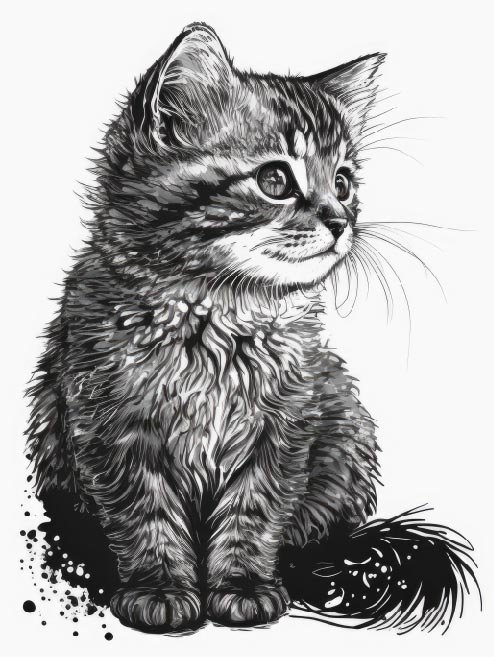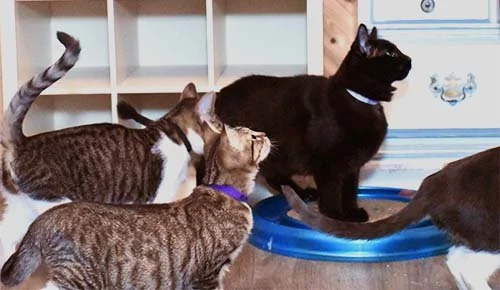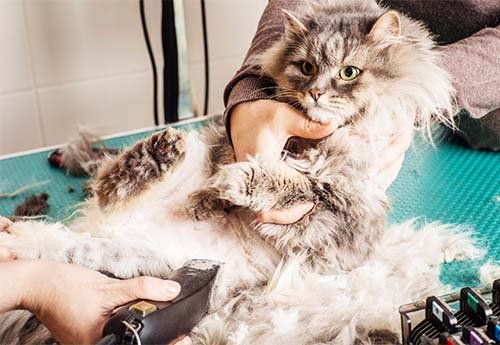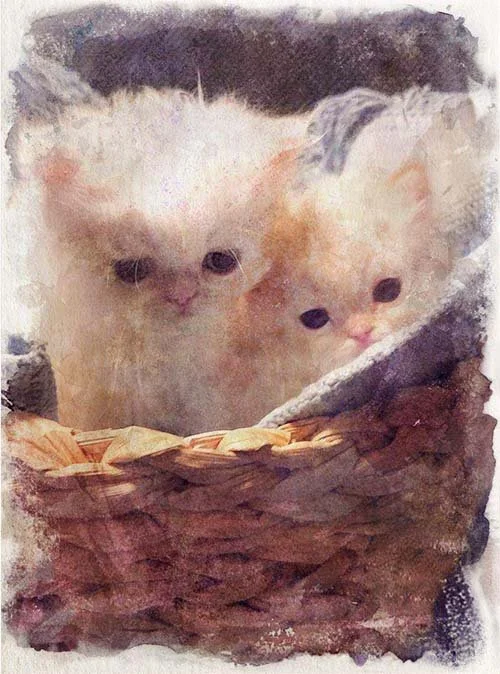
Our services
-

Foster
When a rescue determines it would be in the best interest of their organization to euthanize a kitten/s due to treatable health concerns (ringworm, pneumonia, panleukopenia, feline infectious peritonitis, etc.), we ask they first contact us to ensure we are not already at capacity.
We do not TNR (trap/neuter/return). However, we actively practice our version of ‘TNR’ by ensuring that expecting queens come here to have their last litter and that every kitten is fully vaccinated and spayed/neutered before being placed up for adoption. We also assist those with low/no income by offering to vaccinate and microchip their fur babies at no charge and spay/neuter at our cost.
During intake, we assess the degree of care each kitten needs. Depending on the severity of the illness, the kitten could be introduced to food before the intake process. Then, they are placed in their area for a three-week quarantine or until it’s safe for them to begin the socialization process (whichever is longer).
-

Treatment
They are cleaned, receive the first of three B12 injections, checked for anemia/stomatitis, dehydration, and ear mites, and gently bathed to remove any/all fleas. Each room in the house has a different purpose to achieve our mission. From the bathrooms for initial quarantine, birthing rooms, and litter box training to the spare bedrooms used for kittens requiring treatments (depending on the level of care or disease). The main office has been converted to an IUC, which holds multiple Brooders (incubators) for critically sick or orphaned neonatal kittens who need a temperature-controlled environment. The dining room is the Socialization Station, where kittens learn to get along with other kittens who are not their littermates. The kitchen is the primary treatment center. When kittens are old enough, or while they undergo treatment, they are dewormed. Once they are healthy, we start their vaccination series, and once they gain weight, they are spayed/neutered.
-

Socialization and adoption
Once their health has improved, and they are able to socialize, we play with them and get them used to being around people. When they are ready to be adopted, we send the information to the shelter. At this point, all the adoptions go through the shelter/rescue. We take special care in making sure that the kitten isn’t returned to the shelter, potential adopters pick the kitten up from us.
-

Full cat grooming
At CCKC of Lacey, we believe feeling good starts on the inside, but it isn’t complete unless the outside matches. We only groom cats and kittens for the three F’s: fleas, fungi (ringworm or yeast), and Filth. A bath is with soap and water, but we go a step beyond. We lovingly groom them.
We take every measure to minimize their stress level while bathing, drying, having their nails clipped, sanitary clipped, and fur shaped.
Spay/Neuter Program
To support responsible spay and neutering, Critical Care Kitten Coalition (CCKC) is willing to provide an option for discounted pricing to the Feral Cat Spay and Neuter Project in Renton or Lynnwood. Spots are limited to 10 per month, with CCKC kitties having top priority.
Click the button below to download the form to get your cat spayed/neutered. Once completed, email the form to [email protected]
Get Involved
You can adopt, donate, or spread the word about our work. You can make a difference in the life of a little kitten.
What’s our rate of success in managing sick kittens?
It depends on what they are here for. The rate of success is high for most infectious diseases. So far, this has been our rate:
Ringworm: 100%
Upper respiratory infection: 100%
Pneumonia: 100%
Panleukopenia: 50%
Feline panleukopenia (also called feline distemper or feline parvo) is a virus that affects unvaccinated cats and is usually fatal in kittens. Because it attacks rapidly growing cells, like the immune system and digestive system, it decreases their chance to fight the disease. In these cases, the treatment consist mostly of supportive measure, such as rehydration, warming, and feeding. Antibiotics are usually needed to treat opportunistic diseases.
Malnourishment and trauma affect the kittens outcome. Just like in humans, there are diseases affecting kittens that cannot be treated, like brain tumors. In those cases, and only in those cases, have we been forced to have the kitten euthanized.
With the extensive research we have done, we are now more confident in supporting those kittens with panleukopenia, and hopefully in the future their survival rate will be higher.
For Shelters and Rescues
If you are part of a shelter or rescue that needs a foster home to take care of an extremely ill kitten/group of kittens, or have a pregnant cat in need of midwifery, please select Contact Us. We will be happy to work with you. All kittens are adopted through the mechanisms stablished by the shelter or rescue unless they are surrendered to Critical Care Kitten Coalition. Either way, the kittens are able to remain with us until they go to their forever home. Contact us to learn more.




